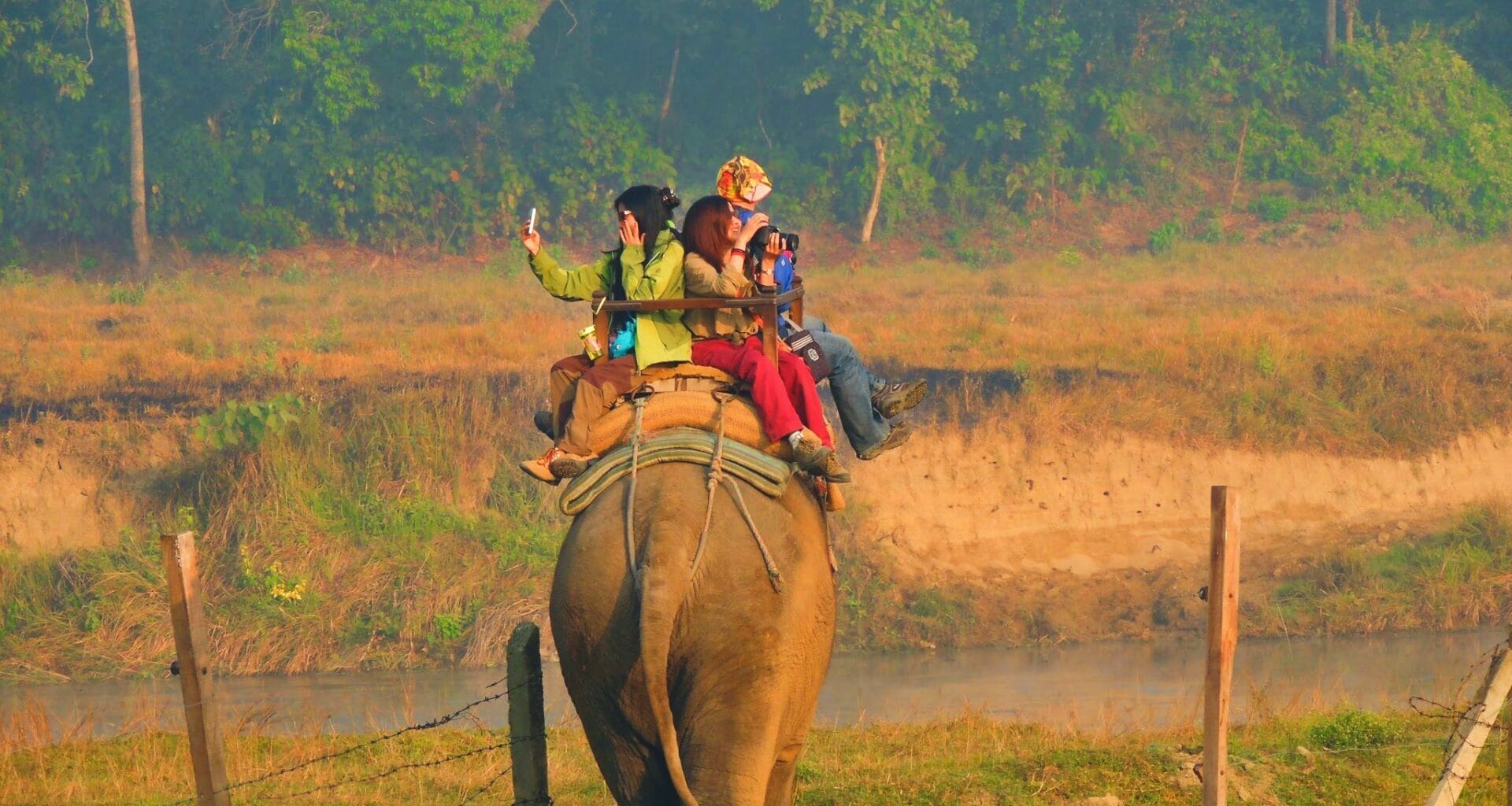As 2023 draws to an end, we wanted to update you on The Ferret’s coverage of animal welfare issues this year – an area our reporters focus on because it is important to our members.
Animal welfare has been a key subject area since our inception in 2015, and we’re only able to investigate these issues with your help, so thanks for all your support.
Impact
Our investigations have continued to influence national debates and arm the public with important new facts on topical issues.
Issues covered in 2023 include fox hunting, an area The Ferret has investigated for nearly a decade now. We’ve regularly spotlighted claims of illegal fox hunting and this year the law in Scotland was changed.
On 24 January, the Scottish Parliament voted to pass a new bill to tighten fox hunting legislation, amidst concerns loopholes were being exploited. Animal welfare groups claimed victory after years of campaigning.
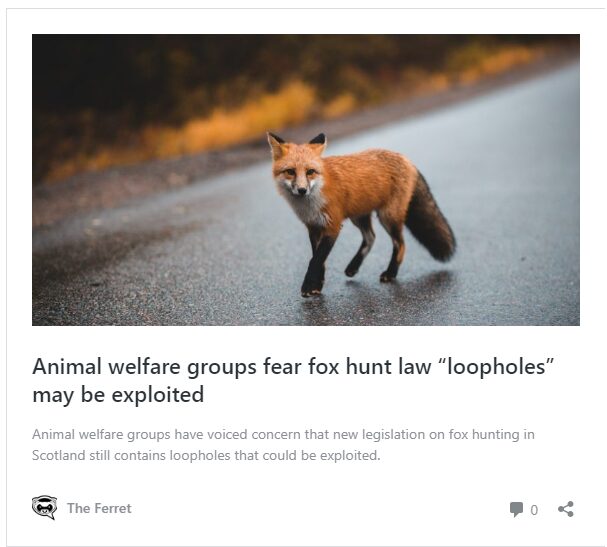
There was another significant development earlier this year. We are one of the few media organisations who investigate greyhound racing, and the Scottish Animal Welfare Commission issued a report in March recommending that no new greyhound tracks be permitted in Scotland due to animal welfare concerns.
The recommendation followed pressure from animal welfare groups and a series of articles by The Ferret highlighting doping scandals, deaths and injuries.
Fish farming
Scottish farmed salmon is the UK’s biggest food export, but the industry has been in dispute with campaigners over environmental problems and animal welfare issues.
In January we revealed that the “illegal” dumping of dead farmed fish in sand dunes on a Hebridean beauty spot had been allowed to continue despite authorities’ plans to ban the practice in March 2022.
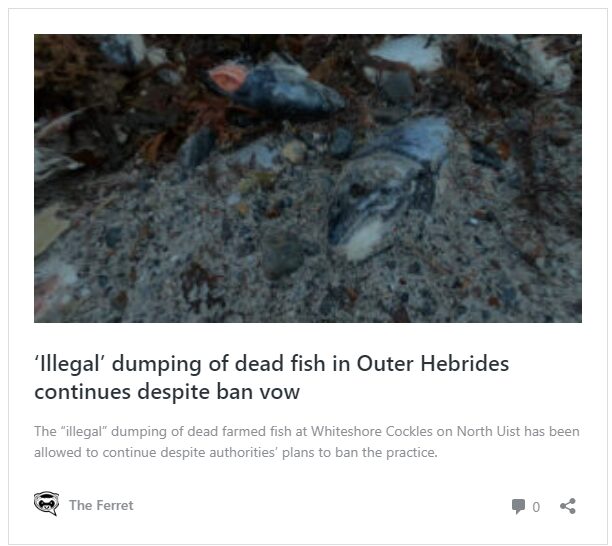
A 2016 Scottish Government exemption, which has allowed the company to bury masses of dead fish from fish farms in breach of environmental rules, will remain in place until the company’s new fish drying plant is approved.
Later that month we reported that an international food labelling scheme would allow five times more lice at salmon farms, prompting Scotland’s official fisheries management body to withdraw its support.
That same month it emerged that NatureScot had granted a two-year research licence to a private fish farm company to test new technology that disturbs dolphins, porpoises and whales at several sites in Scotland, including the Sound of Harris.
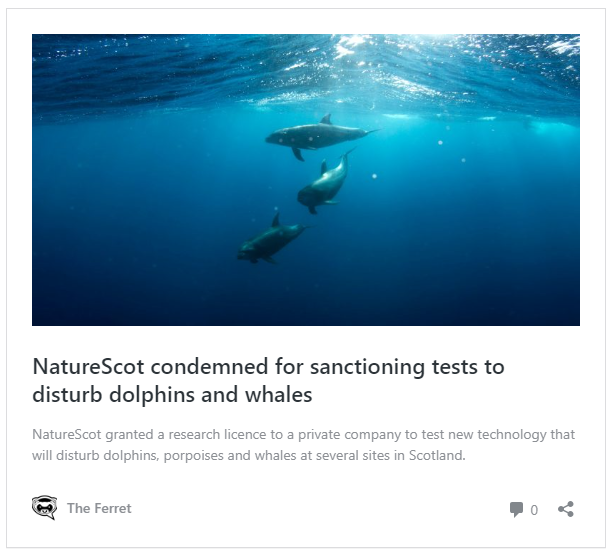
In September, we published video footage of salmon apparently suffering from deformity and disease at a Highland fish farm certified by leading animal welfare and environmental bodies.
We also reported that animal experts and academics recommended mandatory CCTV for all fish slaughterhouses in Scotland and new legislation to ensure staff are “trained and aware of their duty of care” to improve animal welfare.
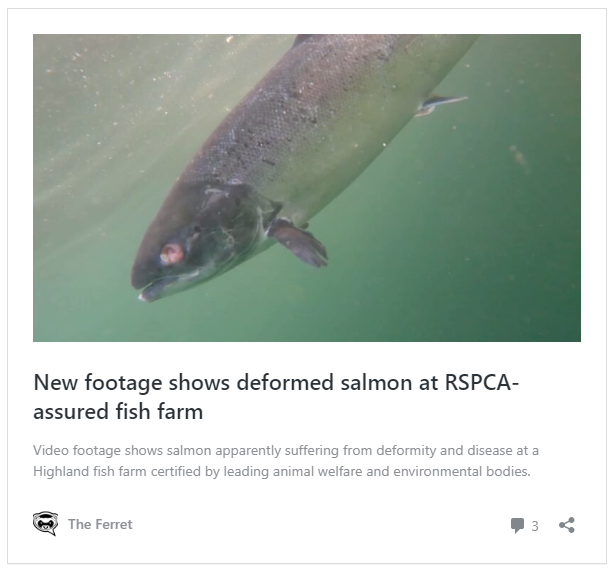
In October we revealed that anti-fish farm campaigners submitted a legal complaint to the Competition and Markets Authority, alleging “greenwashing” by Scotland’s farmed salmon industry. It followed our report which revealed the industry had applied for its protected name to be changed from “Scottish farmed salmon” to “Scottish salmon”.
The complaint was made by groups who argued the sector is trying to mislead consumers as to the origins and environmental impact of open-net farmed salmon.
In November we obtained footage taken covertly by animal welfare investigators who filmed buckets of dead fish being lifted from the Scottish salmon industry’s “poster child” farm.
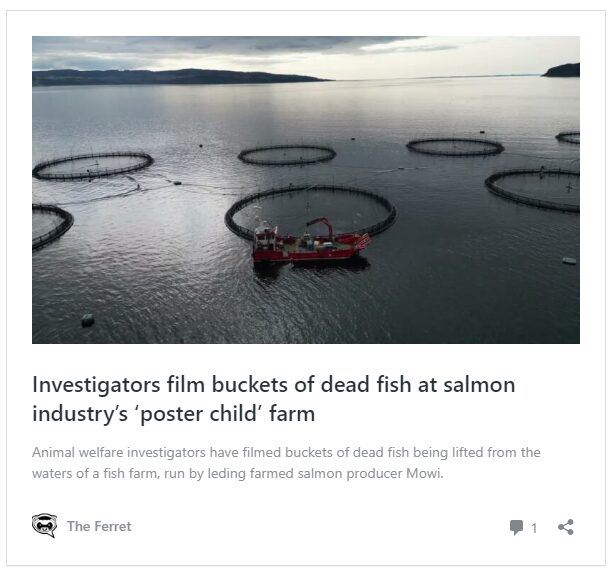
The animal welfare group claimed its footage shows the “cruelty” of the salmon industry and that farming fish involves “nothing but misery for the animals”. It said around 11.4m fish had already died so far in 2023 with “death rates still soaring”.
Meanwhile, lawyers wrote to the Scottish Government accusing it of “causing illegality” in failing to protect farmed salmon from welfare abuses. The letter said covert investigations have exposed welfare abuses at Scottish fish farms including “painful sea lice infestations”, disease, killing without being properly stunned, and salmon swimming for “endless months in cramped, barren cages”.
In July, the Scottish Government said it wanted to improve relations surrounding the fish farming industry and published a new vision for the sector. The vision puts new responsibilities on the industry to work with its critics to improve marine habitats, so The Ferret will be monitoring developments carefully in 2024.
Beavers
The welfare and impact of beavers was a key issue again this year. In February, government woodland bosses were criticised for failing to deliver on a promise to bring beavers back to state-owned Scottish land and save them from possible shooting.
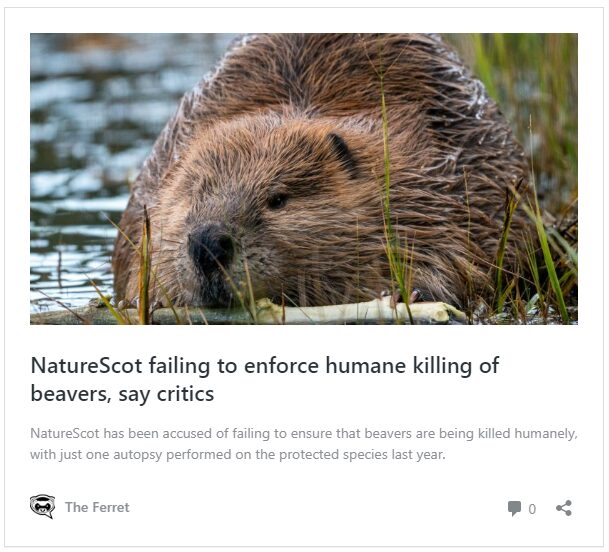
In March we revealed that NatureScot had required just one autopsy to be performed on culled beavers in 2022 despite previous evidence that animals have died in pain.
And in June it emerged that more than 63 beavers had been killed in 2022, according to a report seen by The Ferret.
Other animal welfare issues
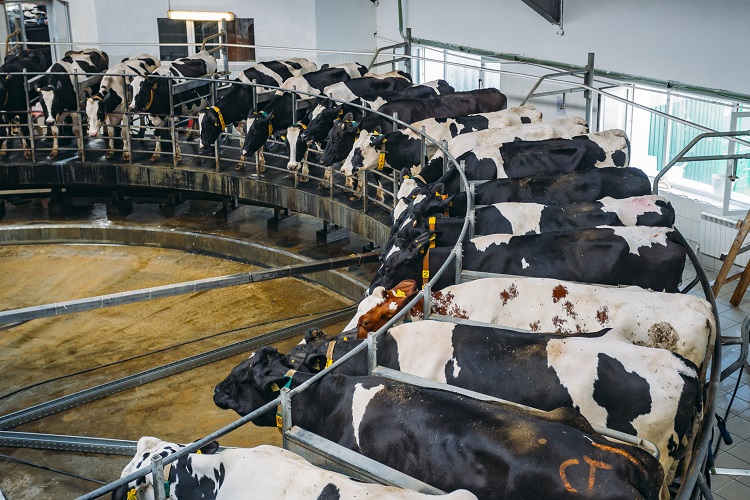
A report from Animal Equality called for Scottish farms and slaughterhouses to be licensed to prevent cruelty to animals because there is “widespread non-compliance” with animal protection laws.
We also reported that a Westminster bill to prohibit the sale and advertisement of cruel animal experiences abroad would not be extended to Scotland due to a row between the Scottish and UK governments.
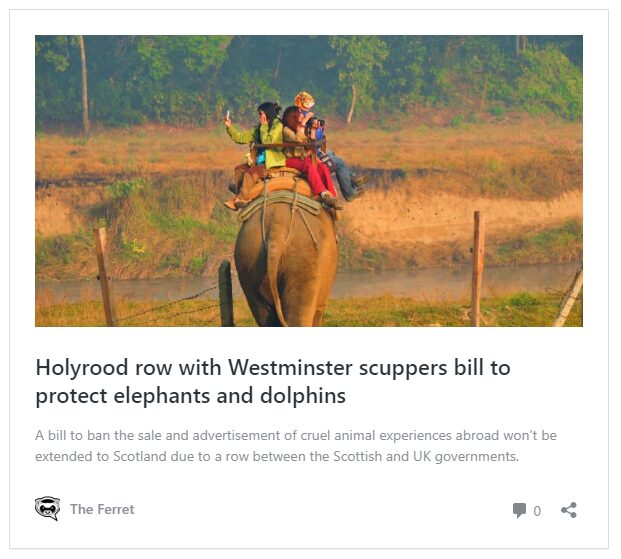
A new report in April claimed that dogs, deer, cats and protected animals such as badgers were among non-target species caught by “cruel and indiscriminate” snares, which can inflict deep wounds, internal organ damage and death.
In July, we revealed that a former assistant to Margaret Thatcher was running an alleged astroturf campaign lobbying governments to prevent a ban on the use of electric shock collars on dogs.
We also discovered that NatureScot killed dozens of barnacle geese to study the impact of avian flu because they wrongly feared it was illegal to test live animals.
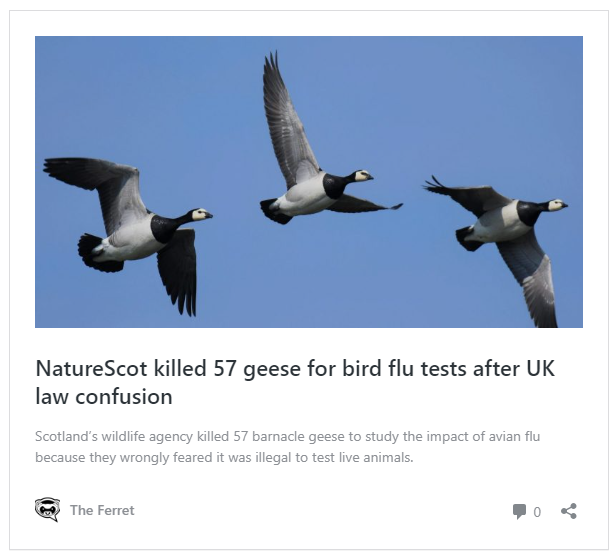
In September we revealed that 47,000 animals had been licensed to be killed by NatureScot in recent years, which prompted first minister Humza Yousaf to promise a government investigation into Scotland’s nature agency.
He made the vow at first minister’s questions after our investigation was raised by the convener of Holyrood’s cross-party group on animal welfare.
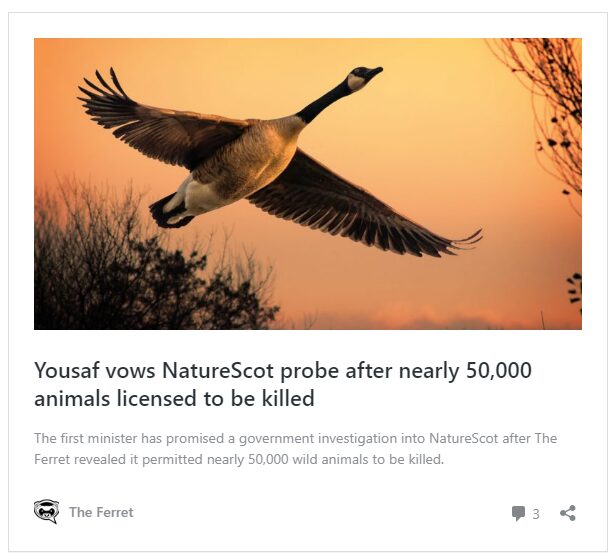
We revealed in October that tax haven-based firms and corporations are among large companies which have bought up 40 per cent of Scotland’s veterinary practices amidst surging pet healthcare prices.
One in five Scottish practices are now owned by just one company, which owns thousands of vet surgeries around the world and is ultimately owned in Luxembourg.
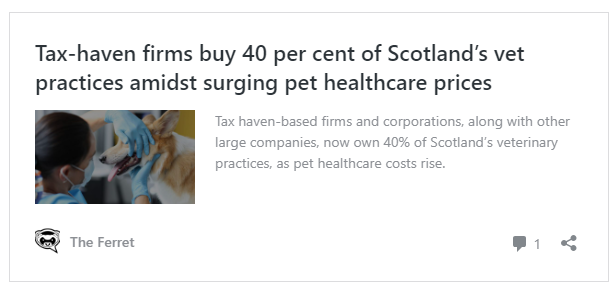
Earlier this month we revealed the Scottish Government’s forestry agency could have killed nearly 2,000 baby red squirrels when their nests were destroyed during tree felling over five years, prompting critics to accuse the public body of an “indiscriminate massacre”.
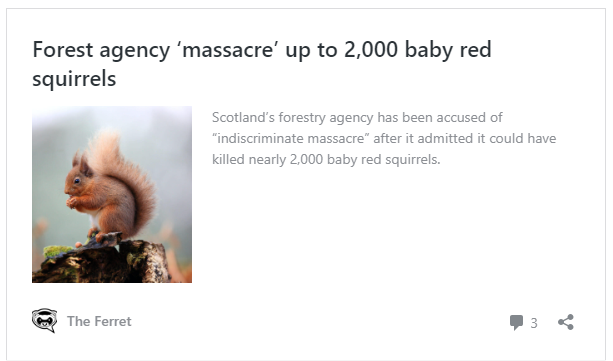
Thanks again for your support and we look forward to covering animal welfare issues next year.
Billy Briggs and Jamie Mann.
Header image credits: Salmon: Corin Smith. Beaver: Paul Stevenson. Cat: .shock/iStock. Greyhound: EcoPrint/Shutterstock.












